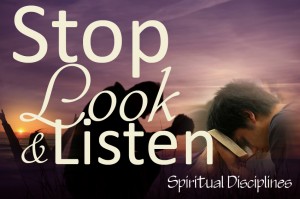Pastor Mike’s message on Sunday, May 31, 2009
I just returned from the C&MA General Council in Louisville, where the theme of the week was “Jesus Only.” In the Alliance, we have a 4-fold motto: Christ our Savior, Sanctifier, Healer, and Coming King. We look to Jesus Christ to be these things to us. The one I want to focus on this week is Christ our Healer.
There are some things I don’t know about divine healing. I don’t know why some are healed and some aren’t. I don’t know why there seems to be more miracles and healings overseas than in the United States. I don’t know why Jesus didn’t heal everyone in Israel when he was on earth. But I do know this: the Bible teaches that we can and should pray for healing. Here are four points to consider:
Healing is in the Atonement
Isaiah 53:3-6 prophcies about Jesus and says that he suffered for our sins and our healing. The sin of mankind at the garden of Eden brought brokenness, sin, death, sorrow, and sickness. The Good News is that Christ has come to restore us – to forgive our sins and to heal us. It is true enough that one day, when we are in heaven with glorified bodies, our sicknesses and diseases are gone. But I believe that healing of the body is available now, through the atonement.
Healing is from Jesus
Healing doesn’t come from the person praying, or from a special cloth you may buy – it comes from Jesus. Jesus demonstrated his power to heal all during his ministry. He healed all who came to him. Matthew 8:16-17 says:
That evening many demon-possessed people were brought to Jesus. He cast out the evil spirits with a simple command, and he healed all the sick. This fulfilled the word of the Lord through the prophet Isaiah, who said, “He took our sicknesses and removed our diseases.”
In John 5, Jesus came across a man at the pool of Bethesda who was paralyzed. The man had to stop paying attention to the water, and focus on Christ, who was soon going to be his healer. Jesus asked, “Do you want to be made whole?” We are helpless and corrupted because of the fall, only Jesus can make us whole. And Jesus healed the man.
Jesus was beaten and crucified for our healing. Christ is our healer.
Healing is linked to faith
So many times Jesus linked healing to faith. Remember the woman who needed healing who said, “If I could only touch the edge of his robe, I will be healed.” She did, and she was. Often he said to those who came to him for healing, “You have great faith.” When Jesus raised Jairus’ daughter from the dead, he sent all the unbelievers out of the room and said to the rest, “Only believe.”
Although it is not right to blame people’s lack of faith for them not getting healed, somehow faith and healing are connected.
We are encouraged to pray for healing
In James 5 we are taught to call for church elders to pray and anoint us if we are sick. “And the prayer of faith will make them well.” Later in the same chapter we are encouraged to “pray for one another so that you may be healed.” It is good and right to pray for the healing of our fellow believers, which is what we did in today’s service. What a blessing that was.
 My new message series I’ve Got Questions continues this Sunday with the question, “Can I know God?” Is it possible that we mere humans can actually have a relationship with the all-powerful, inscrutable, creator God?
My new message series I’ve Got Questions continues this Sunday with the question, “Can I know God?” Is it possible that we mere humans can actually have a relationship with the all-powerful, inscrutable, creator God?
 Sunday, August 16, 2009
Sunday, August 16, 2009